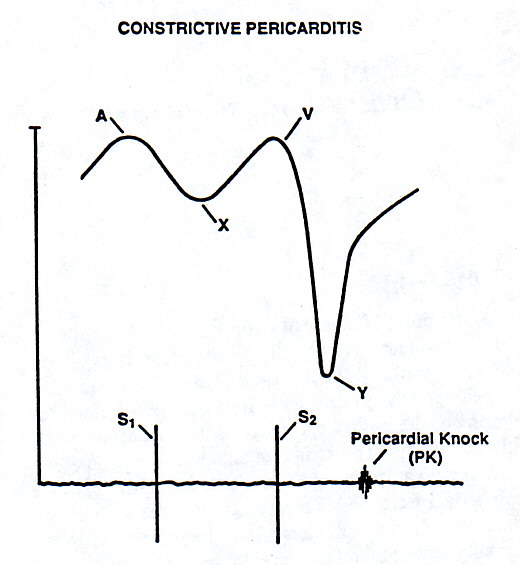
Pericardial Knock (Constrictive Pericarditis)
The early diastolic sound of pericardial constriction occurs slightly earlier than the average third heart sound. Its frequency is somewhat higher, allowing you to hear it throughout the precordium using the diaphragm and the bell. Common causes of pericardial constriction include prior cardiac surgery and uremic pericarditis. Outside the United States, the most common cause is tuberculous pericarditis. Idiopathic pericarditis and prior bacterial pericarditis are uncommon causes. Associated physical findings include elevated jugular venous pressure with a rapid Y-descent. The rapid descent of the jugular veins can usually be seen to occur in conjunction with or just following the pericardial knock. Patients are frequently in atrial fibrillation and have physical findings of right-sided heart failure. Often, edema is less prominent than ascites and there may be associated proximal muscle wasting as these patients are frequently symptomatic for several years before the diagnosis is established. Kussmaul's sign, an inspiratory rise in jugular venous pressure, may be seen in approximately 30-40 percent of patients with constrictive pericarditis.

Return to Heart Sounds Podcast Series
Updated February 2011